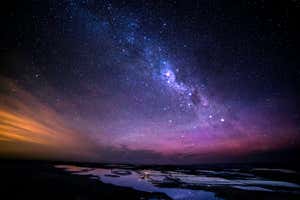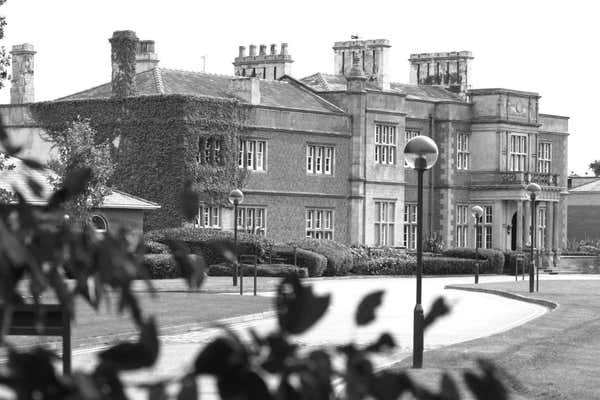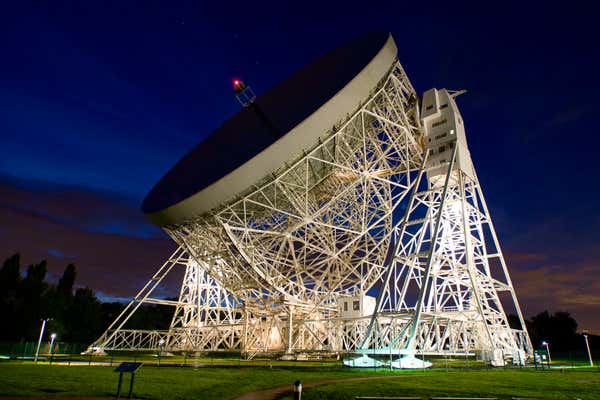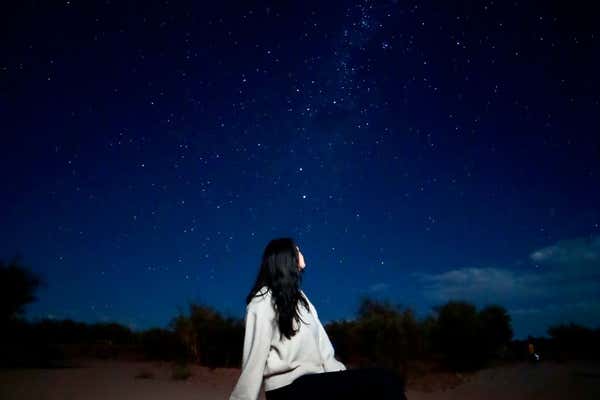New weekender: Mysteries of the Universe, Cheshire, England
If you have a query
29 September to 1 October 2023 - £859 (limited early bird tickets at £859) (No single supplements)
Spend a weekend with some of the brightest minds in science, as you explore the mysteries of the universe in an exciting programme that includes an excursion to Jodrell Bank to see the iconic Lovell telescope. Set in a delightful 4-star hotel, over this weekend you will enjoy a series of fascinating lectures that will cover the Big Bang through to the James Webb Space Telescope, enjoy star gazing with New Scientist’s Abigail Beall and remotely operate an Australian telescope to explore Southern hemisphere skies.
On this weekender, you’ll hear from leading astronomers, astrophysicists, and cosmologists, who will teach you about galaxy forming, the latest research into black holes and what iconic telescopes have already revealed.
Jodrell Bank, located near Manchester, has been at the forefront of a revolution in our understanding of the Universe for over 75 years, from the discovery of black holes to the search for extra-terrestrial intelligence.
The weekend will be hosted by Abigail Beall, New Scientist’s features editor and astronomer. She will guide you through naked-eye stargazing at night. Additionally, you can explore the southern-hemisphere skies through a remote astronomy demonstration that connects with a telescope in Australia.
You’ll stay in the charming Grade II listed DeVere Cranage Estate Hotel with a friendly group of fellow science enthusiasts. This experience is ideal for solo guests and there is no single supplement if you are a solo traveller.
This weekender is designed for anyone interested in astronomy or cosmology. It is suitable for all levels of experience, from beginners to serious stargazers.
DAY 1
Arrive in the afternoon, where you will be able to check into your room at the stunning Cranage Estate, a historic hotel with a Grade II listing.
You will then join the group and New Scientist’s Abigail Beall, who will introduce you to the weekend ahead and the first of several talks with scientists who will share amazing stories behind their work and the achievements of other telescopes and observatories. The first talk is an overview Jodrell Bank and some of the pivotal achievements in its history.
The evening continues with drinks and dinner with your fellow guests and the New Scientist team. Then weather permitting, we will venture outside for some naked-eye star gazing led by Abigail.
DAY 2
After an early breakfast, you will take a twenty-minute coach journey to Jodrell Bank, who will be providing a visit to their galleries, exhibitions and grounds alongside the iconic Lovell Telescope, and a walking tour to the historic ‘south side’ of its site, the original heart of the observatory in the 1940s and 1950s.
Once back at the Cranage Estate, we’ve lined up the following fascinating afternoon talks:
- The James Webb Space Telescope – Emma Curtis-Lake, University of Hertfordshire.
- Black Holes – Prof Jeff Forshaw, University of Manchester.
- Radio Astronomy – Prof Anna Scaife, University of Manchester and Head of the Jodrell Bank Centre for Astrophysics Interferometry Centre of Excellence.
Later in the evening, you can continue the conversation with drinks with our speakers, before dinner and a chance to do some more stargazing, guided by Abigail (weather permitting).
DAY 3
After a more leisurely breakfast, we’ve got a packed morning of talks and demonstrations.
You’ll hear all about:
- How galaxies form – Prof Christopher Conselice, University of Manchester.
- The Square Kilometre Array – Dr Laura Wolz, University of Manchester.
- Manchester’s first satellite – Dr Nicholas Crisp, University of Manchester.
After lunch, we’ll wil connect via a live link up with a remote telescope in Australia hosted by Chris Baker from Galaxy On Glass, where we are hoping to have clear weather, to see the sights of the southern skies.
We’ll wrap the three days with a closing discussion with the speakers, hosted by Abigail, before you boldly go back to your home planet.

DEVERE CRANAGE ESTATE HOTEL, CHESHIRE, ENGLAND
Tucked away in a peaceful corner of Cheshire this Grade II listed four-star rural retreat is near the charming village of Holmes Chapel. It has both indoor and outdoor restaurants, comfortable meeting rooms for our event, a heated pool, gym, steam room and tennis courts.
Outdoors there are 20-acres of attractive gardens with views across the Cheshire countryside and Jodrell Bank is within 5 miles of the hotel.

ADDITIONAL DAYS BEFORE AND AFTER
For those wanting to extend their time in and around Lancashire, you are welcome to arrive a few days early or stay a few more days and enjoy the beautiful countryside around Cheshire or visit Manchester and its many scientific sites including the Science and Industry Museum. This can be arranged for an additional fee.
QUESTIONS
Full event notes will be issued a few weeks prior to the event but feel to drop us a line at tours@newscientist.com with your questions.










